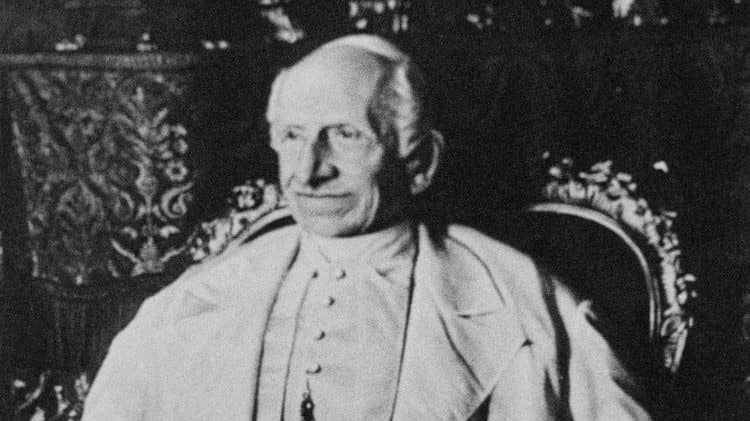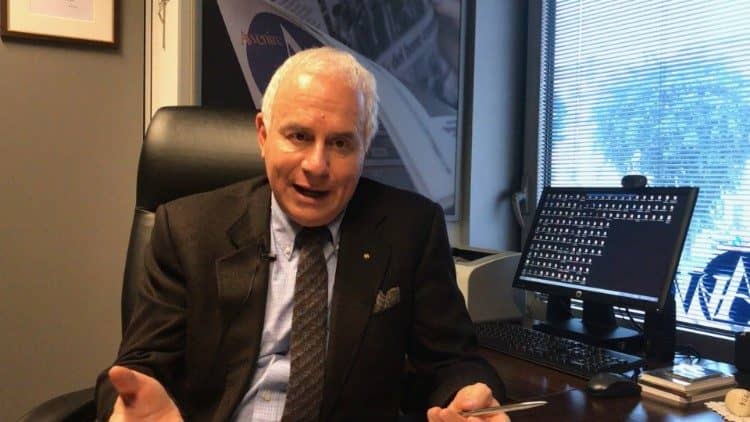ROME – As the leadership of the U.S. bishops’ conference meets with Pope Francis, American Catholics naturally will wonder what may result in terms of getting to the bottom of the case of ex-Cardinal Theodore McCarrick, whose rise to power despite rumors of sexual misconduct remains a question awaiting an answer.
When conference leaders met with the pontiff last month, he turned down the idea of an Apostolic Visitation, meaning a Vatican-backed investigation. The search is now on for other ways to get Rome involved, on the premise that the answers needed probably aren’t in the States.
Obviously, the Vatican understands the McCarrick scandal is a big deal: It released two separate reactions over the weekend, one a statement on Saturday saying Francis has ordered a “thorough study” of Vatican files on McCarrick, the other a letter from Canadian Cardinal Marc Ouellet, prefect of the Congregation for Bishops on Sunday, responding to bombshell accusations from a former papal ambassador in the U.S. charging that Francis was in on the cover-up.
Halfway across the world in Chile, they’ve now got their own McCarrick case.
As our Rome Bureau Chief Inés San Martín reported Monday, Archbishop Francisco Cox of La Serena, who resigned in 1997, now faces multiple accusations of sex abuse, including at least two in Chile and two in Germany, where he relocated after retirement to live in a residence of the Schönstatt Fathers to which he belongs.
According to alleged victims interviewed by San Martín, those abuses stretch back at least to the 1970s when Cox was the bishop of the small diocese of Chillan, riding around in his blue truck and giving children rides.
RELATED: Archbishop becomes latest Chilean cleric to face abuse charges
Despite that, Cox managed to be named secretary, or the number two official, of the Pontifical Council for the Family in 1981. Four years later he returned to Chile as the coadjutor bishop of La Serena, where he became a principal organizer of St. John Paul II’s 1987 visit to the country. He took over as the archbishop in 1990, serving there until he resigned in 1997 for what were described as “psychological difficulties” but later confirmed to be pressures related to abuse allegations.
Although the accusations really only went public in 1997, like McCarrick there were rumors prior to that – rumors which, needless to say, hardly impeded his rise up the ecclesiastical ladder.
Many Chileans would love to know how that happened, the same way Americans are clamoring today for clarity about McCarrick. Yet despite having arguably the most intense clerical abuse crisis in the world, Chile has no former papal ambassador accusing the pope of complicity, no wealthy and influential lay Catholics backing and underwriting that ex-ambassador’s charges, or bishops’ conference leadership banging on Vatican doors in an effort to shake loose an investigation, no incensed press or activist groups descending on Rome, and no high-profile lawyers filing massive claims against the Vatican in national courts.
The question, of course, is why not?
To begin, there’s the obvious fact that McCarrick was a cardinal and someone perceived as a key papal ally, a man who played some role in the election of Francis in 2013, whereas globally speaking, Cox is a basic unknown.
However, that’s not the only difference between the American and the Chilean situations.
To begin with, while Archbishop Carlo Maria Viganò may well be completely sincere in saying that conscience compelled him to come forward with his testimony about informing Francis on McCarrick in 2013, his charges have been amplified and sustained by an informal network of largely American and Italian advisers, sympathetic journalists and news sites, blogs and social media channels.
In at least some cases, those Viganó supporters are part of organizations and groups that have considerable resources at their disposal, and which have issues with Francis that go well beyond his handling of the sex abuse crisis.
Of course, all this is further exacerbated by the fact that everything in the States is bigger, louder, and impossible to ignore. As the saying goes, if America sneezes the rest of the world catches cold. That’s a result of many things, but it doesn’t take a genius in international affairs to realize that above all else it’s about money and military might.
As a result, a Catholic prelate who climbed the ladder in the Vatican and Chile despite a pattern of misconduct is a local scandal, at best – but when it happens in the States, it’s an international cause célèbre.
That might not matter, except for the fact that the Vatican, despite its pretense of serene indifference to public opinion, actually can at times be affected by it. Why did the McCarrick case get two separate statements over the weekend, for instance, while silence surrounded Chile? Fundamentally, it’s because the Vatican knows the world is paying attention to the McCarrick and Viganò saga.
Yet in Chile at the moment, there are fully eight bishops who’ve been subpoenaed by prosecutors on suspicions of abuse, cover-up, or both, and although Francis has accepted the resignations of seven bishops, no official explanation as to why has been given in even a single case – meaning there’s been no accounting, and therefore no accountability.
As Father Eugenio de Fuente, a survivor of psychological abuse and of abuse of power in Chile, put it in a recent tweet: “It would be nice if Cardinal Ouellet’s Congregation for Bishops starts to give transparent reasons for why Chilean bishops’ resignations have been accepted before they turn 75. It would be a minimal act of respect for victims in their dioceses.”
An abuse survivor in Chile, however, can probably be forgiven for believing that his or her suffering is as deep as anyone scarred by McCarrick, and as worthy of the Vatican’s best efforts to establish the truth. Whatever decisions are made on that front, one hopes they’re driven by pastoral consideration and not, as Warron Zevon famously put it, “lawyers, guns and money.”

















